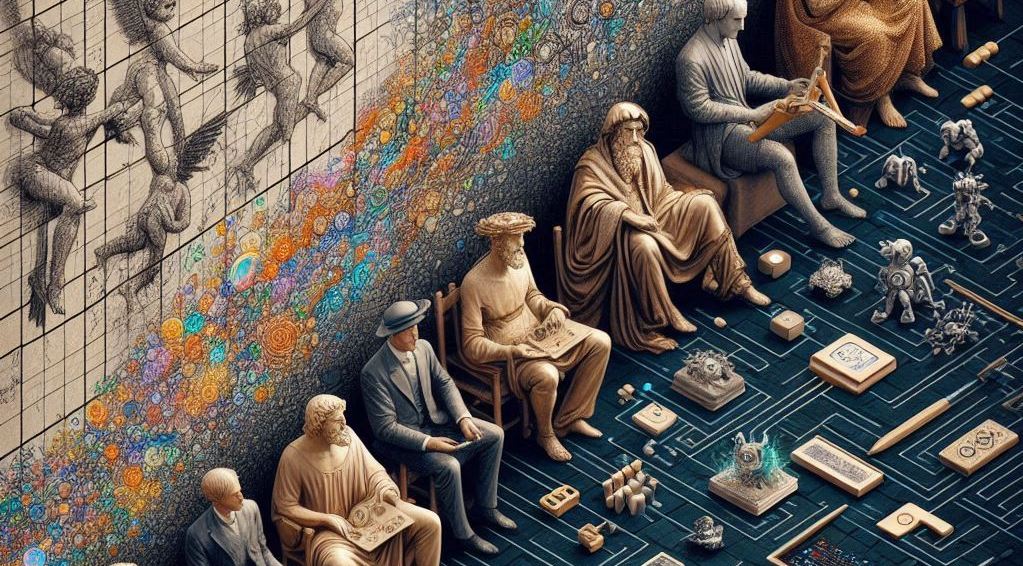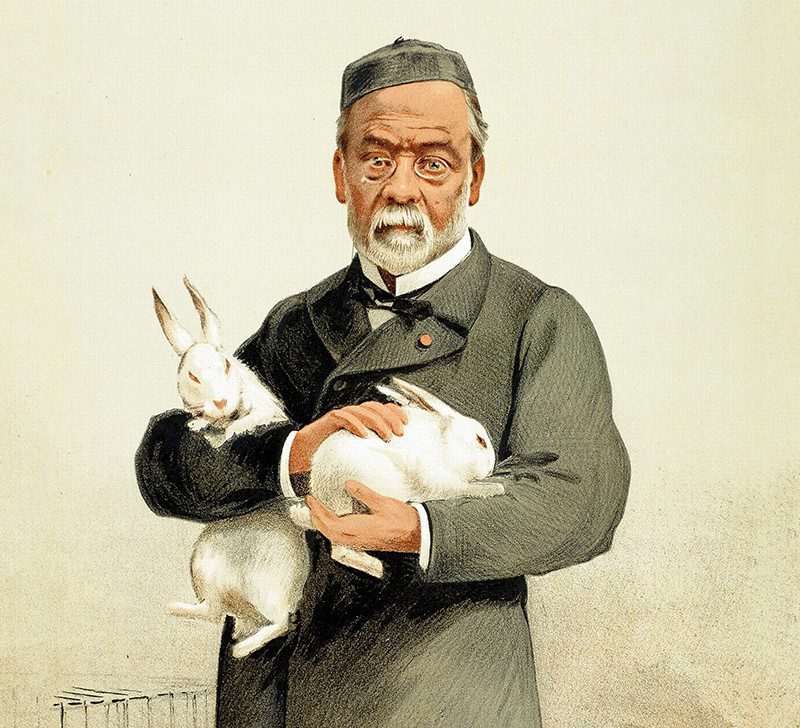Blog
I am going to give six leading LLMs the same instruction to create a prompt. Then I am going to feed the various prompts to some of the most popular image creators, and post the results below. There are two things being tested here: first, the ability of various AIs to come up with creative and useful prompts; and then we are going to see how the various image creation apps go about following the prompts, and what sort of offerings they come up with. We are going to end up with a good number of images, generated by prompts from six AIs — on nine image creation apps: Ideogram, NightCafe (Flux, Dall-E 3, and Imagen), Copilot, ChatGPT, Leonardo, Midjourney, and Gemini’s Imagen 3. The versions of each are whatever was current as of September 27, 2024. […]
Here is a question which I posted on X, and then decided to ask ChatGPT: Throughout history, rarity has driven value. The wealthy became patrons of unique art, music, and culture—think Renaissance art or the Church’s role in the Middle Ages. Scarcity made creativity precious and sought after. Today, we live in a world where music, art, and even writing are no longer rare. Thanks to AI, anyone can create almost anything instantly, and often for free. This shift has made creativity, in some sense, disposable—easily replaced or enhanced within seconds. So, my question is this: In an era where the products of creativity are losing their perceived value (though not their utility), what will define value moving forward? What will future patrons and sponsors support? Or is the age of culture funded by the wealthy fading away? What will be the new “currency” of creativity? […]
In the study of human societies, few questions are as pressing as why some civilizations rise to greatness while others falter. The Roman Empire, which dominated the Mediterranean world for centuries, offers a compelling case study in the intricate relationship between agricultural practices, societal structure, and long-term sustainability. By examining the agricultural foundation of Roman society, we can glean crucial insights into the factors that contribute to the rise and fall of civilizations—insights that hold profound implications for our modern world. […]
JUNE 2024: A new French edition of Ethel Hume’s book Béchamp or Pasteur? A Lost Chapter in the History of Biology has been published.
For the first time, this important text is available in Béchamp’s own language.
Paperback copies can be ordered from the publisher at https://editions-ambre.fr/boutique/a-paraitre/bechamp-ou-pasteur/.
[…]
In episode 1 of this series, Mike recounted what he learned from reading ‘Béchamp or Pasteur?’, and some fun discoveries were made and discussed. In Part 2, Dr. Lando takes over to give us the full download on the history of the Germ Theory conspiracy and why geniuses like Antoine Béchamp have been erased from what used to be mandatory curriculum in Biology 101. How this omission keeps most doctors in the dark about our true biological nature and how it perpetuates the current runaway train we call Western medicine. Alfa Vedic is an off-grid agriculture & health co-op focused on developing products, media & educational platforms for the betterment of our world. This discussion is based on the book ‘Béchamp or Pasteur? A Lost Chapter In The History Of Biology’, by Ethel Hume.
History can be cruel, and rewritten a hundred times over to fulfill the needs of those in control. This series of two clips from Alfa Vedic covers a story highlighting this fact to the 100th degree. The guys at Alfa Vedic delve into the mysterious lost truth of where modern medicine has derived its foundation from and how this path was created through fraud and hubris of one very celebrated man and the powerful elite behind him. Not only is this a fascinating tale of deceit and misinformation but a crucial lesson for those seeking to understand the modern Western medicine paradigm. This discussion is based on the book ‘Béchamp or Pasteur? A Lost Chapter In The History Of Biology‘, by Ethel Hume. It is published by A Distant Mirror.
Some creative number-crunching that worked like a charm in the 1880s is being used again.
When his new rabies vaccine was killing too many people, Louis Pasteur moved the goalposts, by declaring that for 15 days after being injected, people were counted as ‘unvaccinated’; thus removing an important subset of cases from the statistics.
The same trick is being played out today, allowing the myth of the ‘epidemic of the unvaccinated’ to be spread by a compliant media.
[…]Includes: Buckwheat • Cat’s Ears • Chickweed • Chicory • Cleavers • Clover • Common mallow • Dandelion • Dock • Milk Thistle • Wood sorrel • Plantain • Purslane • Sheperd’s Purse • Sow Thistle • Stinging Nettle • Violet […]








